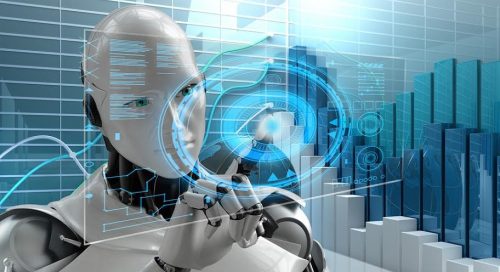Improving Healthcare One Hackathon at a Time
Meet Bené. Bené casually asks, “How was your day?” You might pause to collect your thoughts before responding, or perhaps an exciting event comes to mind immediately. Bené carefully observes you, taking note of your voice, facial expressions, and even how long it took for you to respond. With tools like Bené, artificial-intelligence-based technology is rapidly becoming the new face of medicine.
Now, meet ’ Lucky Yona (MY ’18) and Isaac Robinson (SM ’21), the two Yale undergraduates who helped develop Bené at the 2018 Yale Healthcare Hackathon. The hackathon is a three-day event where people with diverse backgrounds, including healthcare professionals, software developers, entrepreneurs, and even patients, work together to tackle current issues with healthcare. This year’s theme was artificial intelligence-enabling medicine. Yona, a senior majoring in economics, is pursuing a future in technology entrepreneurship, while Robinson is a first-year prospective computer science and music double major interested in healthcare and biotechnology. The two combined forces with eight other team members—four MD/MBA candidates, one PhD student, and three MD candidates, all at Yale—at the hackathon to develop an application that could help improve disease diagnosis, specifically for depression. “Our app started with the idea that people take selfies all the time. We thought we could take a look at whether or not there are indications in people’s faces that they might be developing a disease,” Robinson said.
As other participants pitched their ideas during the event, Robinson and Yona met the MD/MBA group who were interested in depression stratification, a method of determining people’s risks of depression onset. “While there are many confounding variables for analysis of physical illnesses, there are fewer for depression,” Yona said. People are afflicted by mental illnesses in unique ways, but research has shown that speech and facial analysis over a long period of time can be useful for differential diagnosis of depression. Bené analyzes data from responses to a series of engaging trivia questions in order to make these preliminary diagnoses. Its simplicity and convenience make a user feel more comfortable and inclined to continue interacting with the app by responding to more questions. With more data collected, the app uses machine learning to get better and better at detecting changes in emotions over time by analyzing voice and facial expressions.
The team’s innovative idea and hard work paid off when they were awarded $1,500 by the Tsai Center for Innovative Thinking for creating a practical application for medicine that also enhances the patient experience. Although the app is still under development and not available for public use, Robinson has taken a lead role in modifying the program for more robust analysis. The team plans to apply for the summer accelerator sponsored by Tsai Center for Innovating Thinking to polish the product and move closer to placing Bené on the market.
In the meantime, Yona and Robinson have also taken on a new project called Pearl. “It’s the first attempt at a universal biometric authentication platform,” Yona said. This time, imagine using Apple’s Touch ID everywhere, except after your thumbprint registers with the program once, you only need your thumb to pay in stores or identify yourself in the future. Never again would you fear about losing your keys or wallet! The details of the project are still under wraps, but a prototype of Pearl is anticipated to come out this spring. Yona and Robinson hope that their inventive ideas with technology can bring about positive and smooth lifestyle changes for everyone.
Robinson and Yona have both acknowledged that computer science has made these entrepreneurial technology projects possible for them. Even while working together with eight other people during the hackathon to create Bené, they were constantly learning new things. Both Robinson and Yona often find themselves surprised that they are able to readily use their knowledge in order to create useful products and solutions to problems in the real world. “It’s important to take advantage of opportunities presented to you. Now, I am trying to learn how to prioritize all of them,” Robsinson said. What might make the top of their list of project priorities? Both agreed, “There are problems in the world that we need to fix, and there are so many tools out there we can use to make things better and to make these changes happen.” Certainly with Bené, they are one step closer to improving healthcare for everyone.

